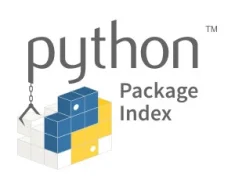I found the PDF “2020 Survey of Artificial General Intelligence Projects for Ethics, Risk, and Policy” in Internet* about companies that are developing the AGI (artificial general intelligence), for example:
ACT-R
ACT-R, an acronym for Adaptive Control of Thought-Rational, is a research project led by John Anderson of Carnegie Mellon University.
Page 39.
AGI Brain
AGI Brain was founded by Mohammadreza Alidoust in 2009, though it only shows activity in 2018-
2019.
Page 41
Binary Neurons Network
Binary Neurons Network is a project by Ilya Shishkin.
Page 52
He4o
He4o is a GitHub project created by Jia Xiaogang.
Page 71
It is written in page 2 of the PDF “2020 Survey of Artificial General Intelligence Projects for Ethics, Risk, and Policy:
“Artificial general intelligence (AGI) is artificial intelligence (AI) that can reason across a wide range of domains. While most AI research and development (R&D) deals with narrow AI, not AGI, there is some dedicated AGI R&D. If AGI is built, its impacts could be profound. Depending on how it is designed and used, it could either help solve the world’s problems or cause catastrophe, possibly even human extinction.”
“The 2020 survey has two main findings. First, the expanded search methodology has identified a large number of new AGI R&D projects, bringing a more comprehensive picture of the field of AGI R&D. Second, accounting for the expanded search methodology, there has been little change in the field of AGI R&D between 2017 and 2020. Some 2017 projects are now inactive and some new projects have emerged in 2020, but the overall picture is largely the same. Specific trends are as follows:
The 2020 survey identifies 72 active AGI R&D projects spread across 37 countries. The 2017
survey identified 45 projects in 30 countries. The 2020 survey updates the 2017 dataset, finding 70 projects that were active in 36 countries in 2017, 57 of which remain active in 2020.”
It is written in following site (https://www.theverge.com/2024/1/18/2404 … -interview) about OpenAI, Mark Zuckerberg, Demis Hassabis, the leader of Google’s AI efforts and artificial general intelligence (AGI):
“OpenAI’s stated mission is to create this artificial general intelligence, or AGI. Demis Hassabis, the leader of Google’s AI efforts, has the same goal.
Now, Meta CEO Mark Zuckerberg is entering the race. While he doesn’t have a timeline for when AGI will be reached, or even an exact definition for it, he wants to build it. At the same time, he’s shaking things up by moving Meta’s AI research group, FAIR, to the same part of the company as the team building generative AI products across Meta’s apps. The goal is for Meta’s AI breakthroughs to more directly reach its billions of users.”
It is written in page 1 of the PDF “Artificial General Intelligence Issues and Opportunities Abstract”about Artificial Narrow Intelligence (ANI), Artificial General Intelligence (AGI) and Artificial Super Intelligence (ASI)*:
“Artificial Narrow Intelligence (ANI) sometimes called weak AI is the kind of AI or machine learning that we have today: each software application has a single specific
purpose. However, generalist agents are being created that can perform several functions, but not as general and creative as AGI.
Artificial General Intelligence (AGI) sometimes called strong AI is similar to human capacity for novel problem-solving and reasoning whose goals are set by humans. It can: address complex problems without pre-programing like ANI requires; initiate searches for information worldwide; use sensors and the Internet of Things (IoT) to learn; make phone calls and interview people; make logical deductions; re-write or edit its code to be more intelligent …continually, so it gets smarter and smarter, faster and faster than humans. Some believe this could happen within ten years; some others argue that AGI is impossible for many more years, if ever. Although there is no consensus within the AI community, some would say AGI will have a unique form of sentience.
Artificial Super Intelligence (ASI) is AGI that becomes so advanced that it sets its own goals and strategies independent of human awareness or understanding. It is most
likely to emerge from AGI. It is unknown how fast ASI could emerge from AGI. It could be almost immediately, or years, or never. Hence, research & innovation policy should consider a range of possibilities. Allan Dafoe, of DeepMind and the Future of Humanity Institute, University of Oxford, says that “the governance of AI is the most important issue facing humanity today…” Elon Musk believes that the single, most pressing existential issue we face is how the advent of ASI is or is not symbiotic with humanity”.
*Link of the PDF “2020 Survey of Artificial General Intelligence Projects for Ethics, Risk, and Policy”:
https://www.google.com/url?sa=t&source= … i=89978449
*Link of the website of the PDF “Artificial General Intelligence Issues and Opportunities Abstract:
https://www.google.com/url?sa=t&source= … inG7LGRCht “
How to avoid catastrophe, possibly even human extinction caused by artificial general intelligence (AGI)?
If the artificial general intelligence (AGI) is a dream, why there are companies that are developing the AGI (artificial general intelligence), for example, ACT-R, AGI Brain, Binary Neurons Network, He4o?
If the artificial general intelligence (AGI) is a dream, why the 2020 survey identifies 72 active AGI R&D projects spread across 37 countries?
If the artificial general intelligence (AGI) is a dream, why OpenAI and Google’s AI efforts are developing the AGI (artificial general intelligence)?
If the artificial general intelligence (AGI) is a dream, why now, Meta CEO Mark Zuckerberg is entering the race of the developing of the AGI (artificial general intelligence)?


![A Survey on Evaluation of Large Language Models. (arXiv:2307.03109v9 [cs.CL] UPDATED)](https://aigumbo.com/wp-content/themes/sociallyviral/images/nothumb-sociallyviral_related.png)

